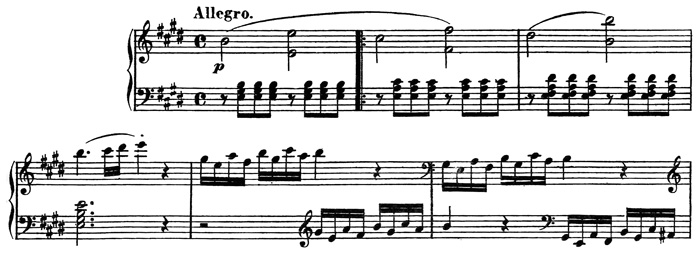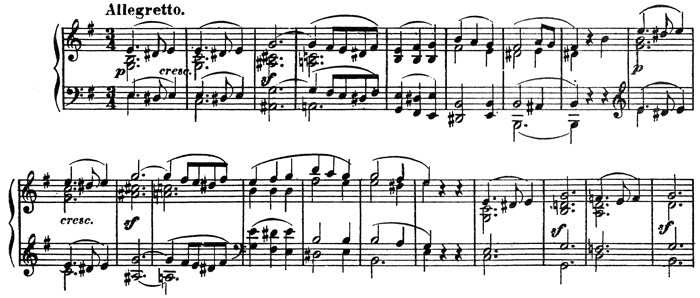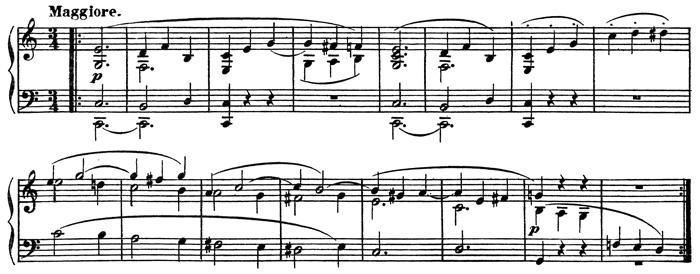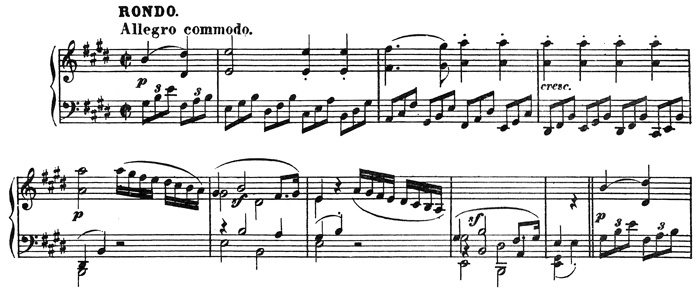Ludwig van Beethoven
String Quartet in F major, after the Piano Sonata in E major, op.14/1
Media Review / Comparison
2013-02-03 — Original posting (on Blogger)
2013-08-07 — New standard layout applied
2014-11-07 — Re-posting as is (WordPress)
2016-07-11 — Brushed up for better readability
Table of Contents
Introduction / The Recordings
In my blog series about recordings of the string quartets by Ludwig van Beethoven (1770 – 1827) in my music collection, this is a short interlude about the quartet in F major, after the piano sonata in E major, op.14/1 — references to the CDs are given at the bottom of the respective section, or in one of the related postings, or see the summary on the postings covering Beethoven’s String Quartets. Here’s a short list of the recordings in this comparison:
- Artemis Quartet (2011)
- Endellion String Quartet (2008)
- Melos Quartett (1984)
The Composition
The String Quartet in F major (#34 in the Hess catalog) is Beethoven’s own quartet version of his piano sonata in E major, op.14/1 which he created in 1801 (around 3 years after the composition of the piano sonata), apparently being fed up with poor arrangements by publishers and fellow composers. So, time-wise this arrangement closely follows his quartets op.18 (1799 – 1800 — it took five more years for him to finish his op.59, the “Razumovsky Quartets”). The original piano sonata (op.14/1) features the following movements:
1. Allegro (4/4)
2. Allegretto — Maggiore (3/4)
3. Rondo: Allegro commodo (alla breve / 2/2)
Transcription vs. Arrangement
I found a description about this quartet adaptation that claims that apart from the instrumentation, the only change that Beethoven did was to change tonality from E major to F major. This is definitely wrong — after all, Beethoven was particularly proud of this arrangement, knowing that it was better than what one could have expected from “competition” (there have even been speculations that this composition was originally conceived as string quartet). I don’t want to go into detail here — just two highlights:
- Interestingly, the first movement is annotated Allegro moderato, rather than just Allegro: a string quartet is not a grand piano, let alone an instrument from that period, such as a fortepiano by Walter or Christofori (much more agile than a modern concert grand) — hence the tempo for a string quartet should definitely be slower than in the piano version.
- Beethoven did not simply distribute the notes onto four voices — he also made significant changes to the course of accompanying voices, reflecting the specific characteristics of a string quartet, and the additional flexibility with having four independent voices. If you have the piano score: it is interesting to follow and see where exactly Beethoven deviates from the piano version — I’ll let you make these discoveries yourself!
Comments on the Individual Recordings
The order of the interpretations is not chronological (neither by recording / publishing date nor by purchase date), but follows my personal, subjective rating, my preferred recording shown last:
Endellion Quartet (2007)
Beethoven: Complete String Quartets, Quintets & Fragments
WCJ (Warner Classics & Jazz) 2564 69471-3 (stereo, 10 CD); ℗ / © 2008

Recorded in 2007, with Andrew Watkinson, Ralph de Souza, Garfield Jackson, and David Waterman — for general remarks see op.18/1.
Notes on the Movements
1. Allegro (4/4)
Duration: 5’53”; 1/4 = 148
Here’s an example of an ensemble that takes the tempo of a typical piano interpretation and applies to the quartet version: the movement is hardly playable at this speed — there are irregularities in the tempo (lack of control, most likely), substantial superficialities, and in the second theme there is not even enough time for the ornament (acciaccatura) — I’m not impressed!
2. Allegretto — Maggiore (3/4)
Duration: 3’46”; 1/4 = 165
This now rather feels Andante than Allegro; sure, formally, 1/4 = 165 would usually be taken for Allegro (if not more) — but from its texture this movement is “felt” in entire bars, making it 55 beats (bars) per minute.
3. Rondo: Allegro commodo (alla breve / 2/2)
Duration: 3’22”; 1/2 = 86
Strange: the tone is rather dull (bad sound management?) — but also the articulation is often “fuzzy” / superficial, the intonation not always quite clean. Note: the liner notes here list this movement as Allegro rather than Allegro comodo.
| Recommendation: | No |
| Rating: | 2.3 (2 / 3 / 2) |
Melos Quartett Stuttgart (1984)
Beethoven: Die mittleren Streichquartette op.14/1, opp. 59, 74, 95
DG 415 342-1 (stereo, 3 CD); ℗ 1985

Recorded in 1984, with Wilhelm Melcher, Gerhard Voss, Hermann Voss, Peter Buck — for general comments see op.59/1.
Notes on the Movements
1. Allegro (4/4)
Duration: 6’08”; 1/4 = 136
Expressive, even dramatic — fairly good in general, but with very strong (and sometimes heavy) vibrato, the first violin often too sharp and dominating.
2. Allegretto — Maggiore (3/4)
Duration: 3’16”; 1/4 = 190
This movement is good / OK, except maybe for the strong vibrato.
3. Rondo: Allegro commodo (alla breve / 2/2)
Duration: 3’12”; 1/2 = 92
Lots of drive, impetus, expression, etc. — but too fast overall, losing some detail in the fast notes.
| Recommendation: | Not bad, but can’t compete with the Artemis Quartet. |
| Rating: | 4.0 (4 / 4 / 4) |
Artemis Quartet (2011)
Beethoven: Complete String Quartets
EMI Records / Virgin Classics (Amazon MP3 download, 220 Kbps), © 2011

Recorded in 2011, with Natalia Prischepenko, Gregor Sigl, Friedemann Weigele, Eckart Runge — for general comments see op.74.
Notes on the Movements
1. Allegro (4/4)
Duration: 6’57”; 1/4 = 130
Finally a version that respects the moderato attribute and takes this piece from the string quartet perspective rather than trying to imitate a piano or even fortepiano: very good tempo selection! The interpretation is excellent: expressive, with careful and detailed articulation and phrasing — unfortunately sometimes also with rather strong vibrato (which I ignored in the rating, as I have no historically informed version).
2. Allegretto — Maggiore (3/4)
Duration: 3’38”; 1/4 = 180
Good tempo, articulation, detail, and agogics! A nice detail: the last two notes in the (repeated) Allegretto part are a jump down two octaves, from e3 to e1: in the piano score there is a binding slur, and I’m sure this was carried over to the quartet score (which I don’t have). Here, this is not playable, strictly speaking: both the Endellion String Quartet and the Melos Quartett ignore the binding slur — here, Natalia Prischepenko does a nice (and definitely legitimate) portamento to bind the two notes.
3. Rondo: Allegro commodo (alla breve / 2/2)
Duration: 3’37”; 1/2 = 78
A good tempo again: truly Allegro comodo – otherwise see my remarks to the first movement!
| Recommendation: | Yes, definitely — despite the vibrato! |
| Rating: | 5.0 (5 / 5 / 5) |












